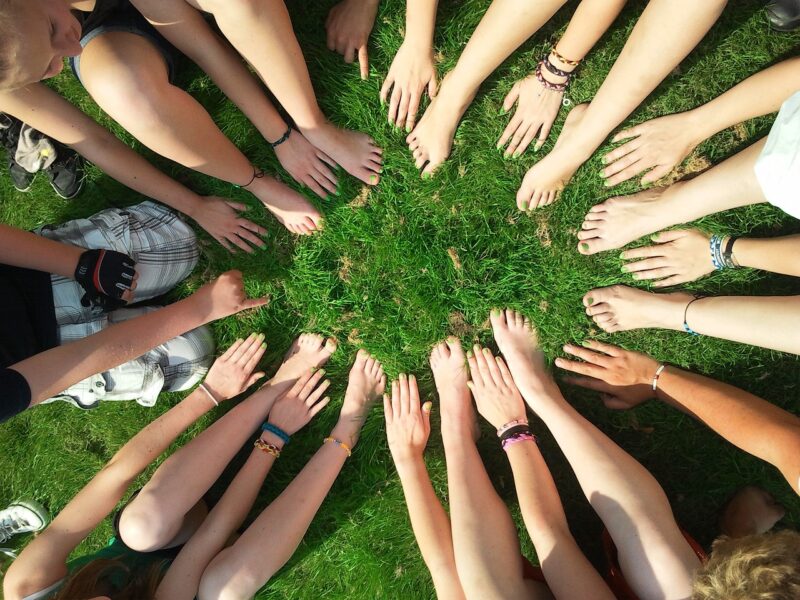The Evolution of Human Cooperation and Why We’re Hardwired to Work Together
November 12, 2024

The capacity for cooperation is a defining characteristic of humanity. From hunting and gathering to forming complex societies, our ability to work together has shaped the trajectory of our evolution and cultural development. This article explores the evolution of human cooperation, its biological underpinnings, and the various ways it manifests in modern society.
1. The Biological Basis of Cooperation
Before delving into the historical aspects of cooperation, it is crucial to understand its biological roots. Both anthropological and evolutionary perspectives suggest that the capacity for cooperation is woven into our genetic fabric. Evolutionary biologists theorize that cooperation may have been a critical factor in our early survival.
Studies show that cooperation is prevalent in many species but is especially evident in humans. One explanation for this phenomenon lies in the concept of reciprocal altruism, which posits that individuals will act to benefit others with the expectation that those benefits will be returned in the future. This concept encourages mutual aid within groups, enhancing survival probabilities for all involved.
Additionally, the human brain has evolved to support social interactions. Our cognitive abilities, including empathy, social reasoning, and communication, have enhanced our capacity to cooperate. The presence of specialized brain structures that process social information demonstrates the biological imperative behind our cooperative tendencies.
2. Historical Milestones of Cooperation in Human Society
The journey of cooperation can be traced back to our earliest ancestors. Evidence from archaeological findings indicates that early humans lived in tight-knit groups that relied on cooperation for hunting, gathering, and protection against predators. This collective effort was crucial to their survival and adaptation to various environments.
As communities evolved, so did their forms of cooperation. The development of agriculture around 10,000 years ago marked a transformative point in human history. It facilitated larger, stationary societies where people had to work together to cultivate land, raise livestock, and store surplus food. This agricultural revolution fostered the growth of complex social structures and interdependencies.
The emergence of trade networks in subsequent eras marked another significant evolution in human cooperation. By exchanging goods and services, individuals could benefit from the strengths of others, further establishing connections and fostering relationships. These early trade routes laid the foundation for the interconnected global society we experience today.
3. Types of Cooperation and Their Impacts
Cooperation manifests in various forms, each with distinct impacts on society:
- Reciprocal Cooperation: As previously mentioned, this involves mutual exchanges among individuals, reinforcing social bonds and encouraging group cohesion. Examples include friends supporting each other during challenging times or communities uniting for a cause.
- Collective Cooperation: This occurs when individuals work toward the common good, as seen in collective labor initiatives, social movements, or community service projects. Collective efforts can lead to significant changes, addressing societal issues ranging from poverty to environmental sustainability.
- Civic Cooperation: Active participation in civic duties promotes cooperation at the community and national levels. Voting, attending local meetings, and engaging in public debates are all expressions of civic cooperation that strengthen democratic processes and improve governance.
- Global Cooperation: In our increasingly interconnected world, global cooperation has become vital for addressing challenges that transcend borders, such as climate change, pandemics, and humanitarian crises. International collaborations, such as the Paris Agreement, showcase how important it is to work together for the planet’s future.
Each type of cooperation holds the potential to create significant positive changes in societies, illustrating that our hardwired nature to collaborate serves essential functions.
4. The Psychology of Cooperation: Why We Help Each Other
Understanding the psychology behind cooperation is essential to grasp its complexities. Humans are not only social creatures but are also driven by emotional and moral considerations. The feelings of guilt, empathy, and social approval shape our cooperative behavior.
Research indicates that we are more likely to cooperate when we perceive fairness and equality in a social context. This is often evidenced in group dynamics, where individuals who act selfishly are penalized socially or emotionally. Consequently, the drive for social acceptance often outweighs the temptation to act solely in one’s self-interest.
Empathy plays a critical role as well, as studies show that individuals feel compelled to help others when they perceive their plight. This emotional response can trigger a range of altruistic behaviors, from volunteering to donating to charitable causes.
5. Challenges to Cooperation in Modern Society
Despite the inherent drive to cooperate, modern society presents numerous challenges that can hinder collaborative efforts:
- Polarization and Division: Political, social, and economic divides can create environments where cooperation is stifled. When groups become entrenched in their beliefs, collaboration becomes difficult, often resulting in hostility and misunderstanding.
- Competition for Resources: In times of scarcity, individuals and groups may prioritize self-interest over collective well-being. The pursuit of limited resources can lead to conflict rather than cooperation, undermining the potential benefits of collaborative efforts.
- Globalization and Cultural Differences: While globalization can foster interconnectedness, it also presents challenges in the form of cultural misunderstandings. Cooperation across cultures requires sensitivity to different norms, practices, and values, requiring intentional effort to bridge gaps.
Navigating these challenges requires a conscious effort to emphasize common ground, foster understanding, and cultivate an appreciation for diverse perspectives.
6. The Future of Human Cooperation
As we stand on the brink of unprecedented global issues, the need for cooperation has never been more crucial. Whether it’s addressing climate change, fighting pandemics, or creating equitable social systems, fostering a culture of cooperation will be essential for creating a sustainable future.
Technological advances offer promising avenues for enhancing cooperation. Digital platforms enable global collaboration and foster communities centered around shared goals, facilitating collective action at an unparalleled scale. However, there is also a cautious need to navigate the challenges posed by technology, addressing issues of misinformation and fostering trust.
Ultimately, our evolutionary predisposition to cooperate underscores the importance of nurturing this trait in a modern context, encouraging communities, societies, and nations to unite for common causes.
Conclusion
Understanding the evolution of human cooperation is not only fascinating but essential for navigating the challenges of the modern world. Our capacity to work together has been shaped by millennia of evolution and remains a vital tool in our collective toolbox. As we confront unprecedented global issues, the embrace of cooperation as a driving force for change will be essential for securing a sustainable and equitable future for all. This deep-seated inclination to collaborate reinforces the truth that “together we are stronger,” and highlights the profound impact that cooperative efforts can have on shaping our societies.








